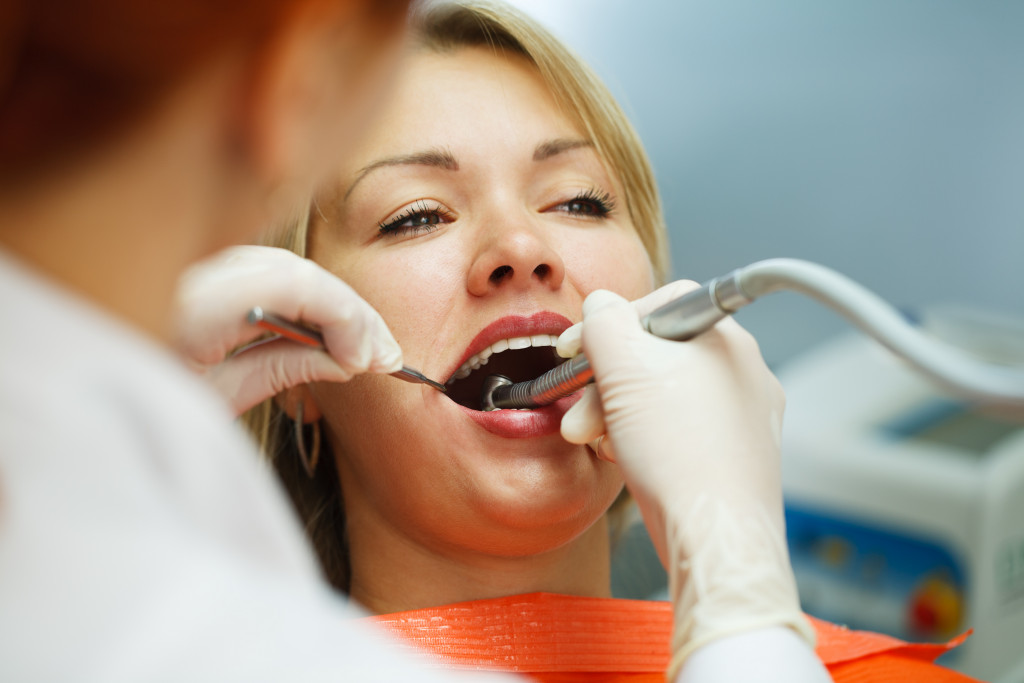- Dental injuries can occur in any sport but are most common in contact sports.
- If you suffer a dental injury while playing sports, seek medical attention right away.
- The best way to prevent sports-related dental injuries is by wearing protective gear such as mouth guards and face masks.
- Knowing what steps to take after suffering a dental injury can make all the difference in treatment and healing time.
Dental injuries can happen anytime, but unfortunately, they are often more common when playing sports. If you participate in a contact sport like basketball or football and non-contact sports such as soccer, it is essential to understand the steps for managing dental injuries when playing. Here’s a brief look at what you need to know in the event of sports-related dental damage.
What Are the Most Common Types of Sports-Related Dental Injuries?
If you’re an athlete, you know that injuries are part and parcel of sports. But did you know that your teeth are also at risk of injury when playing sports? According to the American Academy of Pediatric Dentistry, “sports-related injuries to the mouth and teeth account for 10 to 39 percent of all dental injuries in children and adolescents.”
Unexpected Contact with Other Players or Objects

Athletes can sustain dental injuries through incidental contact with another player or object while playing their sport. This type of injury is most common among athletes who play contact sports such as football and hockey, but it can happen in any sport if a player isn’t expecting contact or isn’t wearing the proper protective gear.
Direct Blows to the Mouth Without Protective Gear
Another way athletes can sustain dental injuries is through direct blows to the mouth without wearing any protective gear. This type of injury is most common among athletes who play baseball or basketball but can occur in any sport where players are not wearing proper protective gear like helmets, mouthguards, faceguards, or other protective equipment designed to reduce the risk of injury.
Falling on Hard Surfaces Without Protective Gear
Athletes can also sustain severe dental trauma by falling on hard surfaces without wearing appropriate protective gear such as helmets or face masks. Again, this type of injury is more common in contact sports like football and hockey, but it can occur in any sport where players don’t wear adequate protection.
Falling on hard surfaces without protection increases the risk of concussion and facial fractures—including fractures to the teeth—and lacerations that could require medical attention from a dentist or doctor.
Using Sports Equipment Incorrectly
Another way athletes can sustain dental injuries is by misusing sports equipment. This includes not wearing a helmet or face mask when playing certain sports or having ill-fitting protective gear, which can come off during competition and put the athlete at risk of dental trauma. Additionally, some sports involve contact with complex objects such as bats or golf clubs, and if these objects are not used correctly, they can cause severe dental trauma.
What Should I Do If I Suffer a Sports-Related Dental Injury?

If you suffer a dental injury while playing sports, it is essential to seek medical attention immediately. Depending on the type of injury you have suffered—whether it’s a fracture or an avulsed tooth—your dentist may be able to repair the damage with fillings or crowns, or they may need to perform root canal therapy to save the tooth. If you have suffered a laceration inside your mouth, stitches may be necessary for it to heal correctly.
On the other hand, tooth replacement solutions may be recommended by your doctor if the injury is too severe to repair, such as with an avulsed tooth. In this case, a dental implant or bridge may be the best option for restoring your smile.
How Can I Prevent Sports-Related Dental Injuries?
The best way to prevent sports-related dental injuries is by wearing protective gear such as mouth guards and face masks whenever possible. Mouth guards help protect your teeth against chipping and fractures, while face masks help protect your nose, cheeks, and eyes from impact during contact sports. Proper technique during any sport can also help reduce your risk for injury in general—not just dental injuries!
Sports-related dental injuries can be painful and stressful experiences for anyone who suffers from them—but knowing what steps to take afterward can make all the difference in terms of treatment and healing time. Take the time to research the type of protective gear you should wear for your sport, and always seek medical attention immediately if you suffer a dental injury. >Summarize the main ideas in short bullet points:

